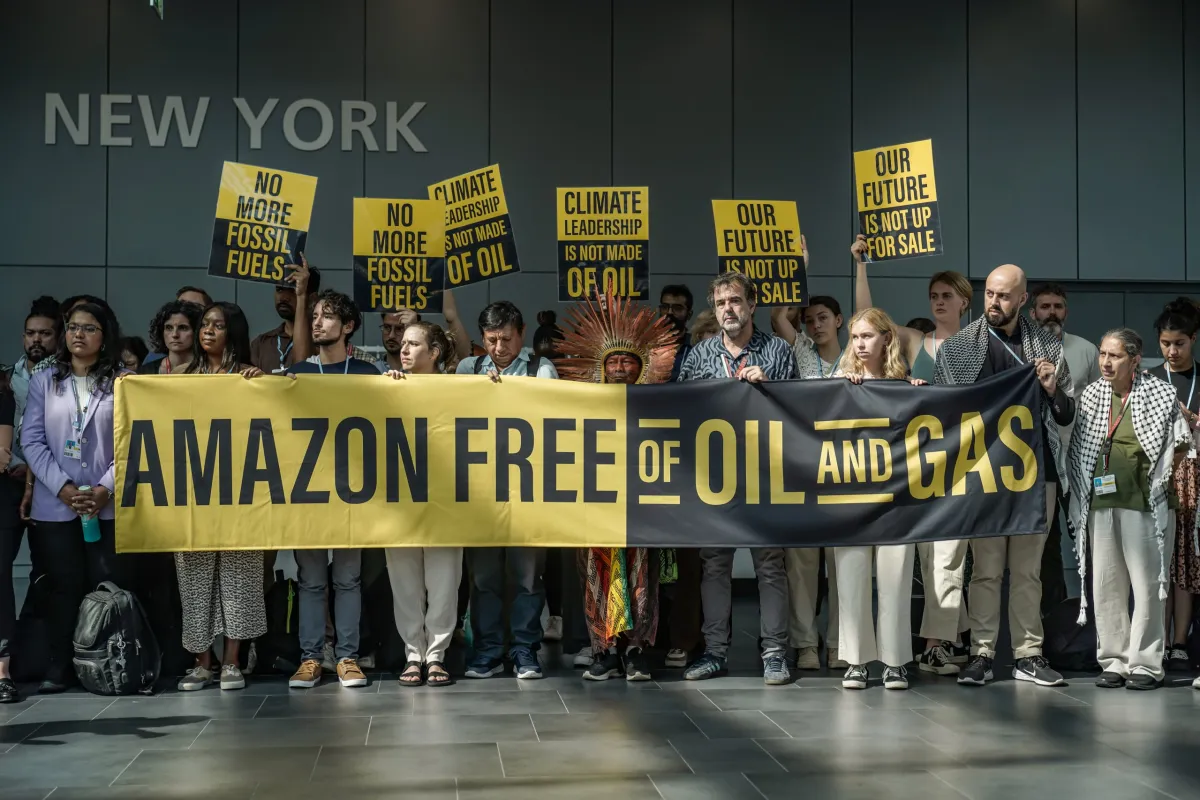
By Jeff Kapembwa
Brazil’s plans to host the annual Conference of Parties (COP 30) next November will face a backlash from non-climate change campaigners, who prefer agribusiness over the protection of forests and indigenous people, who are threatened by the calamity.
The annual Indaba is planned for November 10-21 to be hosted chiefly by Belem and in some parts of the Amazon forest.
It justifies the call by campaigners for environmental protection is facing political headwinds, logistical confusion that might overshadow the global meeting that seeks to remedy climate change destruction on humanity and the environment.
Findings by Jesse Chase-Lubitz, a climate change campaigner also doubling as a multilateral development banks for Devex.
She, previously worked at Nature Magazine, where she received a Pulitzer grant for an investigation into land reclamation, foresees the global climate event in Brazil, facing various backlashes, both political and from other advocates.
In her research, she foresees logistical confusion and political headwinds threatening to overshadow the Brazil’s COP 30 climate ambitions.
Preparations, which started in earnest, seem to be facing a backlash-driven by the opposition-right wing in Brazil that has raised a Bill for Parliamentary approval, seeking to promote agribusiness instead of climate change.
The authorities had already embarked on a rigorous campaign to review and facelift various infrastructure, but now, the new development is seemingly frustrating the planning of logistics, which are now shrouded in confusion, leaving the policy agenda unclear.
The conference, to be largely held in the Amazonian city of Belém, was pitched by Brazilian authorities as a way to promote the protection of the forest, according to them. It was presented as a landmark opportunity to bring the world to the shrinking tropical rainforest.
Lubitz notes that all is not well for now, and calls for urgent intervention.
She cites the domestic political landscape, facing Brazilian President Luiz Inácio Lula da Silva, a leftist leader known for his steadfast commitment to environmental protection, to contend with as pressure mounts.
The opposition ‘right’, is a hurdle as they instead want to promote support for agribusiness — often at the expense of protecting forests and Indigenous communities, she says.
Compounding pressure on Brazil is rising anti-environmental movement at home.
Brazil’s Congress recently approved a controversial Bill dubbed the “devastation bill” by environmental activists and social movements. The bill will substantially weaken environmental licensing, allowing medium-risk projects to move forward without impact assessments. This includes mining, agricultural, and oil exploration projects.
Those looking to start a project are now exempted from doing an impact assessment on how their plans will impact Indigenous and Quilombola communities.
These are descendants of enslaved Black people who escaped slavery. Instituto Socioambiental, a Brazilian NGO that advocates for Indigenous communities and local communities, found that 32.6% of all Indigenous territories and 80% of Quilombola communities would be excluded from impact studies.
Lula can still decide to veto or sign the bill over the next 15 days, but the bill’s passing follows a noticeable political shift in Brazil toward the right.
“We are a complex democracy,” said do Lago. “We are a country that unfortunately has been very divided by politics in recent years. We hope that COP30 is going to be an opportunity for most Brazilians to understand how much Brazil can benefit from this agenda, and this is something that we need to convince people.”
It’s a concern for the authorities, whose time to prepare-barely four months before the event is held-is frustrated by unforeseen headwinds, what with the planned action from the Bonn meeting resolutions.
This, has further heightened panic among organizers. Of greater concern too, organizers of the COP30 seem to be scrambling for time as they need to set up a government-run housing portal for attendees which has delayed after it was planned for June this year but is nowhere to be seen.
André Corrêa do Lago, president-designate for COP-30 says the Brazilian conference will still proceed as planned despite some of the avoidable developments, deemed internal.
According to the program for COP 30, analysts say negotiations during the conference may mirror the disjointed energy surrounding the venue.
This year’s event is branded as an “implementation COP,” and Brazil has eschewed a single high-profile outcome in favor of pursuing an action “menu” of climate issues and solutions.
To put it another way, the Brazilian COP30 presidency is planning to push every boulder up the hill, with the hope that a few will stay.
“We have to take into consideration everything that’s available today,” do Lago said. “And then we can try to build a menu of everything that’s available and how much each will bring.”
After three decades of climate COPs featuring various promises and declarations, Brazil is attempting to implement them all.
And with geopolitics shifting, the coalition of emerging market countries currently led by Brazil, known as BRICS, could have a unique opportunity to influence the future of global climate ambitions and action.
But with disputes over the agenda already surfacing at midyear pre-COP30 meetings in Bonn, Germany, last month, and a new climate finance push from the BRICS bloc gaining steam, COP30 is shaping up to be less of a single summit and more of a sprawling test of climate diplomacy under pressure.
Arguably, analysts say, the main task for COP 30 in Belém this November is for every country to submit a national plan, as required under the 2015 Paris Agreement, to cut carbon emissions as far as necessary to hold to the 1.5 °C limit.
